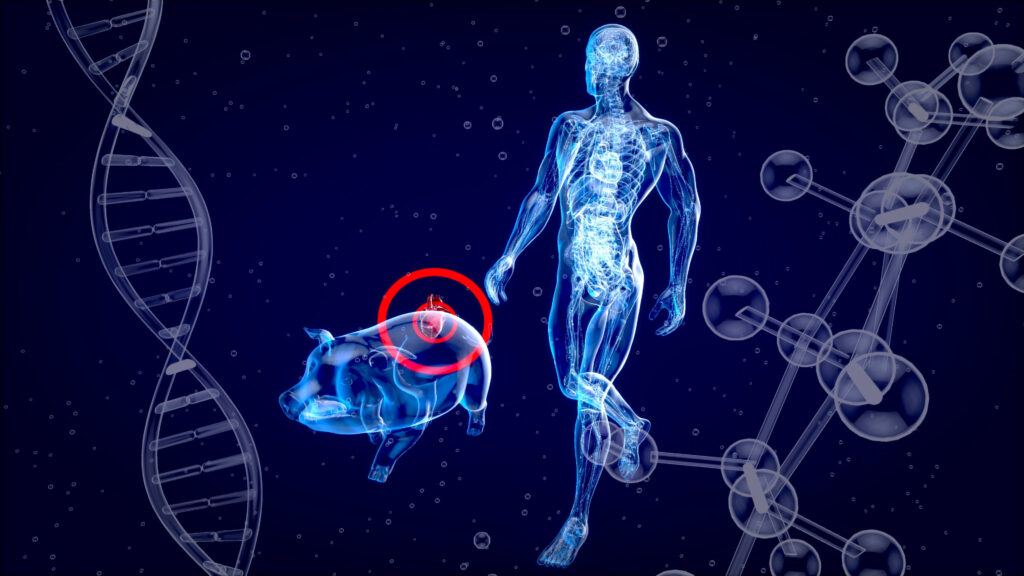
Xenotransplantation, a real solution ?
Xenotransplantation is the process of transplanting living cells, organs or tissues from animals into humans.
To overcome the current shortage of organs available for replacement, xenotransplantation of hearts, corneas, skin and kidneys has been attempted. However, a major obstacle facing xenotransplantation is rejection due to a cycle of immune reactions to the graft. Both adaptive and innate immune systems contribute to this cycle, in which natural killer cells, macrophages and T lymphocytes play an important role.
The improvement in human life expectancy over recent decades has increased the prevalence of a growing number of diseases such as heart failure.
Organ transplantation, the last resort and definitive treatment for terminal organ failure, suffers from a major disparity between available organs and patient needs. Xenotransplantation is therefore a potentially interesting solution for overcoming this obstacle.
Pigs are the species of choice for harvesting organs for xenotransplantation, as they possess organs anatomically similar to those of humans and are adapted to genetic modification.
In January 2022, American surgeons successfully transplanted a heart from a genetically modified pig into a human patient, but the feat was short-lived, as the patient died two months later due to an undetected virus present in the organ.


The ethical issues surrounding this practice
This involves developing carefully constructed ethics regarding the creation and care of animals that will be created to serve as donors, determining when and under what circumstances children and infants can be considered xenograft recipients, and studying the potential emotional impact on people who have had their lives extended thanks to organs from donor animals.
Although xenotransplantation could be the solution for thousands of patients who will need solid tissue or organ transplants, industry and the scientific community must proceed with caution to ensure the safe development of this potentially life-saving technology.
The effective alternative to xenotransplantation
To overcome these limitations, advances in medical engineering show that the artificial heart can meet the world’s need for heart transplants. This solution goes beyond the interspecies constraints and risks inherent in xenotransplantation. The total artificial heart, designed with advanced technologies such as 3D printing and bioprinting, represents an ethical and technological breakthrough. They can bring new benefits to patient health, such as biocompatibility.
Artificial hearts offer significant advantages over xenotransplantation: the risk of rejection is minimized, and the transmission of animal diseases is eliminated.
Procope Medicals is committed to pushing back the frontiers of medical innovation by developing a total artificial heart.

Source : https://www.huffingtonpost.fr/science/article/greffe-reussie-d-un-coeur-de-porc-sur-un-humain-une-premiere_190964.html
